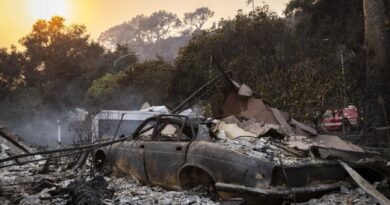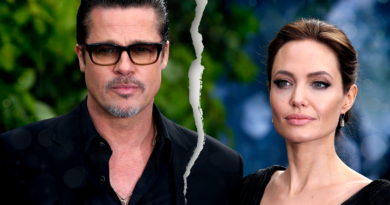Davos Delegates Aware of Potential Trump Disruptions at World Economic Forum | Money News
For three days, Donald Trump held sway over Davos from afar.
On the fourth day, he took to the stage in a virtual address that brought his warnings of economic conflict with Europe directly to its political figures.
Streamed live from the White House to the World Economic Forum, he conveyed an unwavering faith in American strength and issued a clear challenge to those who do not cooperate.
Money blog: Could Santander really abandon the UK?
Initially, he adhered to the script from his inauguration and discussed his domestic agenda. However, prompted by a question from his Mar-a-Lago neighbor and former adviser Stephen Schwarzman, co-founder of the Blackstone Group, he unleashed a torrent of remarks.
Mr. Schwarzman highlighted a recurring theme of the week: business frustration with EU regulations, which the president seized upon.
He criticized taxes imposed on American firms and what he perceives as a lopsided trade relationship. “They don’t take our food, they don’t take our cars, but they send us cars by the million.”
He also condemned EU demands for $15 billion in back taxes from Apple, along with investigations into Google and Facebook. “These companies, like them or not, are American companies.”
“Nobody’s pleased with it, and we will address it. I’m trying to be constructive; I have a fondness for Europe, but they treat the US very unfairly.”
Read more from Sky News:
Chancellor hints at Heathrow’s third runway
Trump keeps everyone in Davos guessing
His proposal for businesses present included a corporation tax rate of just 15% for companies that move their manufacturing to the US, with tariffs imposed on those that do not—an approach that would likely provoke retaliatory measures.
In attendance were the heads of the European Central Bank, the World Trade Organization, the International Monetary Fund, and various cabinet ministers and central bankers, all visibly uncomfortable.
To underscore the challenge that Europe faces, Mr. Trump referred to a $600 billion investment pledged by Saudi Arabia’s Crown Prince Mohammed bin Salman and suggested he should “increase it to a trillion.”
After metaphorically parking his tanks on their lawns, he offered some glimmers of hope, though lacking details, regarding how he might tackle the serious situation unfolding in Ukraine.
Alluding to “millions of dead bodies lying in the flat fields,” he asserted that efforts to secure peace “must begin soon.” When asked when that might occur, he placed the onus on Russia. “Ukraine is ready.”
After beginning the week speculating on what Trump 2.0 might entail, the delegates in Davos—a distinctive mix of wealth, influence, civil society, and celebrity—depart the Alps with a clear understanding of the impending disruption.



